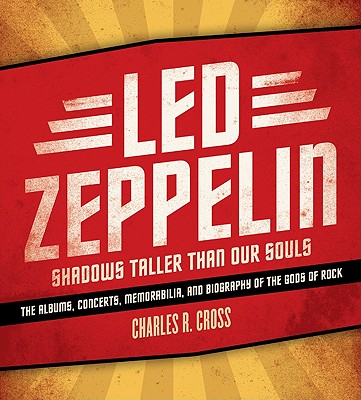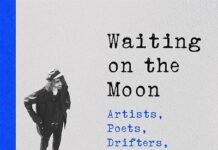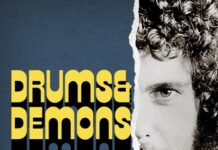The story of Led Zeppelin — like so many of their vintage rock peers — has been so extensively documented and scrutinized, one has to wonder what speck of dirt could possibly be left to scoop up and expose to the world. Of course, living in a day and age where controversy is poised as a sales tool, what else would you expect? Fortunately, for those more drawn to the actual music than the mud sharks and occultism, there are some reliable, no-bones resources for the discerning Zeppelin scholar. Charles Cross’ Shadows Taller Than Our Souls is a graphically enhanced trip through the band’s origins, eight studio albums, tours and an aftermath of solo careers, reunions and a large, looming legacy that continues to fascinate and attract followers.
Perhaps the most appealing thing about this book from the get-go (besides being a visually stunning hardcover in its own slipcase) is that Cross, who’s penned biographies on Jimi Hendrix and Kurt Cobain, isn’t out for blood and glory. Unlike the critics of the day, the author clearly is a fan; however, he doesn’t soft-pedal through the weaker elements of Zeppelin’s music. Indeed, many of the group’s early songs were lifted from blues masters, many uncredited, and Cross isn’t afraid to spell it out. Whatever barbs Cross has, he saves for the critics, especially Rolling Stone, notorious for panning the band during their hey day (now, in light of today’s prefab pop-oriented musical offerings, the publication has changed its stance somewhat).
Chapters are assigned to each album, boxed in by chapters about their beginnings and post-group activities, including the group’s reunions. There are numerous, nascent facts that come to light (at least to this writer) that other Zepheads may find intriguing. Aside from Alistair Crowley, Jimmy Page had a fondness for antiques and tropical fish. During the recording of the first album, Page and John Bonham knocked heads about the drummer’s volume, Despite the tension, Cross is quick to comment that the first album “transformed” Bonham’s playing, which, of course, in the future, was never an issue.
Cross goes on to cite Physical Graffiti as Zeppelin’s “biggest” album (no argument here), feels Presence was rushed, and explains the divide that occurred between Page/Bonham and Robert Plant/John Paul Jones during the making of In Through The Outdoor. To bring everyone up to date, the solo years and collaborations, along with their Live Aid, Atlantic Records and 02 reunions (no mention of their jam with Neil Young at the Rock n’ Roll Hall Of Fame in 1995) are also covered. By the end of the book, you’re as unsure as anyone if the group will ever play together again.
For this writer, learning that Page’s fascination with Crowley had spilled over onto the inside grooves of Led Zeppelin III in its initial pressing drew a rich source of inspiration. Low and behold, I pulled out my copy and there scratched on each side were the quotes: “Do what thou wilt shall be the whole of the law” and “So mote be it.” Talk about interactivity?
To top it off, the book is filled with reproduced memorabilia — photos, promos, posters, press releases, tickets, handbills, even a CD with a short Jimmy Page interview. Friends and family will marvel at its moving parts, making it an excellent conversation piece as well a helpful tome of information on one of the biggest acts on the planet. Who needs a whole lotta love when everything you could ever love about Led Zeppelin is in Shadows Taller Than Our Souls?
~ Shawn Perry




















